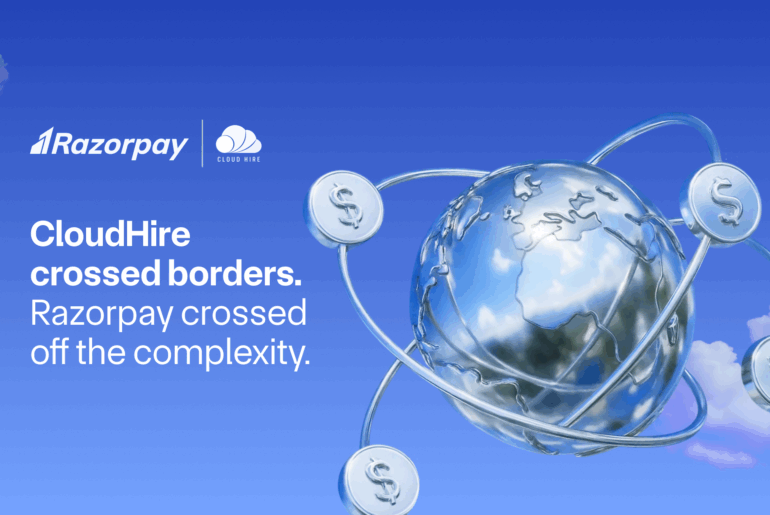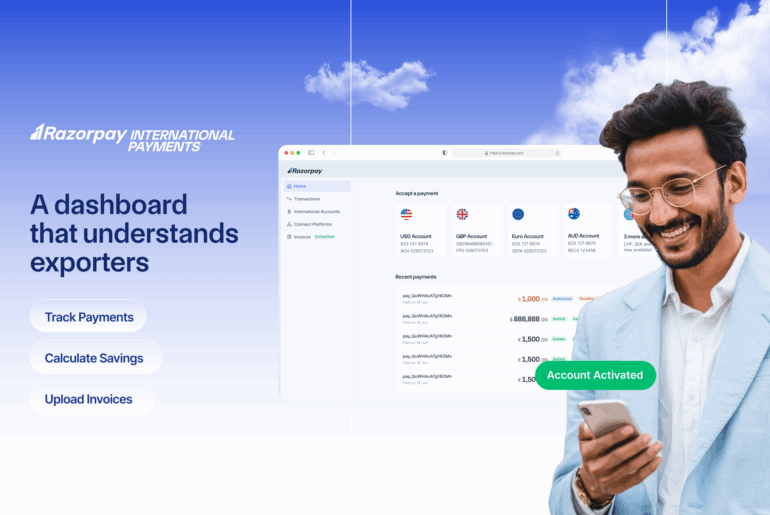India is quickly emerging as a major growth market for SaaS companies worldwide. Some of the biggest SaaS companies from the United States, the United Kingdom, and Germany have built a significant presence in India and automated an additional line of revenue for their business. India’s startup ecosystem is the third-largest globally, offering a large and continuously expanding pool of tech-driven businesses seeking SaaS solutions. As digitization and tech-first startups continue to grow in India, more Indian businesses will adopt digital workflows and shift everyday operations to the cloud. Naturally, the opportunity for global SaaS businesses will continue to expand.
But, while the Indian market is exciting for Global businesses, the challenge for them has been scaling in India and understanding the distinct nuances of the Indian market, especially when it comes to payments. Each target customer comes with a unique set of cultural, payment and technical nuances. Therefore, it is critical that you choose a payment partner that allows access to all customers by offering all payment methods.
This is where choosing the right payment partner becomes crucial. You need a partner that understands Indian payment behaviour while staying compliant. Well, that’s exactly where Razorpay fits in…
Let’s dive into what global businesses need to know about payments before entering the Indian market, and how Razorpay can help serve Indian customers smoothly from day one.
Understanding India’s Unique Payment Landscape
The Indian payment ecosystem is fundamentally different from Western models. The dominance of government-backed systems like the Unified Payments Interface (UPI), combined with strict local regulations and diverse consumer behaviors, creates a unique landscape. Even major global players initially struggle to get it right.
Many global SaaS companies initially relied on their international, card-based subscription models, only to face high failure rates and frustrated customers. A clear example is OpenAI, which began with card-only payments and later introduced UPI after seeing how essential localized payment options are for Indian users. The solution lies in localization, which can be achieved by partnering with local payment aggregators.
Opportunities for Global SaaS Businesses in India
With over 900 million internet users and widespread smartphone adoption, India is undergoing a fast-paced shift toward cloud-based solutions.
India has more than 63 million small and medium-sized enterprises (SMEs), many of which are adopting SaaS to improve efficiency and reduce operational costs. Notably, over 51% of recognized startups emerge from Tier II and III cities, highlighting opportunities beyond major metropolitan areas.
The rising adoption of SaaS is driving demand for specialized, vertical solutions in industries such as financial services (BFSI), healthcare, and manufacturing. Global SaaS providers can capitalize on these sectors with tailored offerings.
Key Challenges in Accepting Payments from India for Saas Businesses
Incompatibility of Global Payment Gateways
While international payment gateways dominate global e-commerce and SaaS, they aren’t always optimized for Indian payment systems. Indian customers primarily use UPI, RuPay cardsand mobile wallets, so not supporting these options can lead to higher payment failures and abandoned transactions.
Regulatory Hurdles and Compliance
Under the Reserve Bank of India’s (RBI) PA–CB (Payment Aggregator – Cross-Border) regulations, global businesses importing into India must navigate a complex compliance framework. These rules are designed to maintain transparency, prevent illicit transactions, and ensure legitimacy across the payments ecosystem, which includes stringent KYC requirements, data-localization mandates, and strict adherence to FEMA.
For many global business, the challenge lies in not having the local expertise or infrastructure to keep up with evolving regulations, manage escrow accounts, or integrate smoothly with India’s diverse and highly regulated payment landscape.
High Cross-Border Transaction Fees
For global businesses, high cross-border payment fees lead to unpredictable costs and eroded profit margins, and the complex process involving multiple intermediaries makes tracking difficult and reconciliation prone to error. Without a local payment partner, you may miss out on the transparency of fee structures and hidden fees.
Currency Conversion and Exchange Rate Volatility
When Indian customers pay in INR, global businesses often need to convert these funds into USD, EUR, or other currencies. Fluctuations in exchange rates can reduce the value received, while currency conversion fees add extra costs. This can be particularly challenging for businesses that rely on predictable margins.
Without a local payment partner, global SaaS businesses may waste resources and lose revenue trying to navigate India’s complex payment landscape. That’s where Razorpay steps in…
India’s Full Stack Payment Solution for Global Saas Businesses
| Capability | Razorpay | Global PSPs |
| Coverage | 100% of how India pays.
UPI, RuPay, Cards, EMI, and more |
Mostly support only International Cards |
| Recurring Payments | Fully supported across all Payment methods | No support, especially on UPI. |
| Infrastructure | Own UPI switch → Over 90% success rates across flows | Low authorization rates, high drop offs |
| Optimization | Routing and real-time performance tuning so customers always land on the highest-success payment path | None |
| Go-live | On-the-go, real-time activation | 4–6 weeks, high ops overhead |
| Compliance | RBI-licensed, compliant with PACB norms | No support for the Travel segment |
| Customization | Flexible checkout & APIs | Rigid global roadmap, no India expertise |
- Covers 100% of how India pays
For global SaaS businesses, reaching every Indian customer means supporting the payment methods they actually use. Razorpay makes this easy by enabling payments via UPI, debit cards, credit cards, and Netbanking. India’s payment landscape is diverse, and Razorpay ensures you won’t miss a single transaction.
- Seamless Currency Conversion & Foreign Exchange
Razorpay simplifies cross‑currency payments by converting customer payments to INR (Indian Rupees) at the time of transaction. You can accept international currencies via Razorpay’s API, and Razorpay settles the funds in INR using the exchange rate locked in at payment time. This removes Foreign Exchange risk for you; there’s no need to manage currency conversion or hold foreign funds, and Razorpay handles all of it seamlessly.
- Complete Visibility With Just One Dashboard
Razorpay provides a centralized dashboard and API that give global businesses real-time visibility and control over their cross-border transactions into India. With clear pricing, competitive real-time foreign exchange rates, and fully transparent transaction fees, businesses no longer have to deal with hidden charges from intermediary banks. The unified dashboard makes it easy to track every payment, from initiation to settlement, in one place, even when managing multiple international and local payment methods.
- Recurring Payments That Just Work
Recurring billing in India has traditionally been difficult, especially with UPI and domestic cards. Razorpay changes this with subscription-ready APIs that support recurring payments across UPI, debit cards, and credit cards. Your customers subscribe once and renew automatically using their preferred methods, and you get consistent cash flow with fewer failures.
- Compliance, handled
Razorpay makes compliance effortless for global SaaS businesses operating in India. With automated TCS (Tax Collected at Source) and adherence to OIDAR (Online Information Database Access and Retrieval) rules, Razorpay ensures foreign digital service providers register for GST (Goods and Services Tax).
All cross-border transactions are managed in line with FEMA (Foreign Exchange Management Act) requirements, while RBI (Reserve Bank of India) guidelines are fully respected. By handling these complex regulatory and taxation requirements automatically, Razorpay allows you to focus on growth without worrying about local filings, tax remittance, or compliance hurdles.
To Sum Up…
Expanding into India doesn’t have to be complicated. With Razorpay, your SaaS business can start accepting local payments seamlessly, backed by reliable infrastructure, compliance support, and dedicated assistance. Everything you need to grow in India is ready from day one.
Ready to scale in India?



